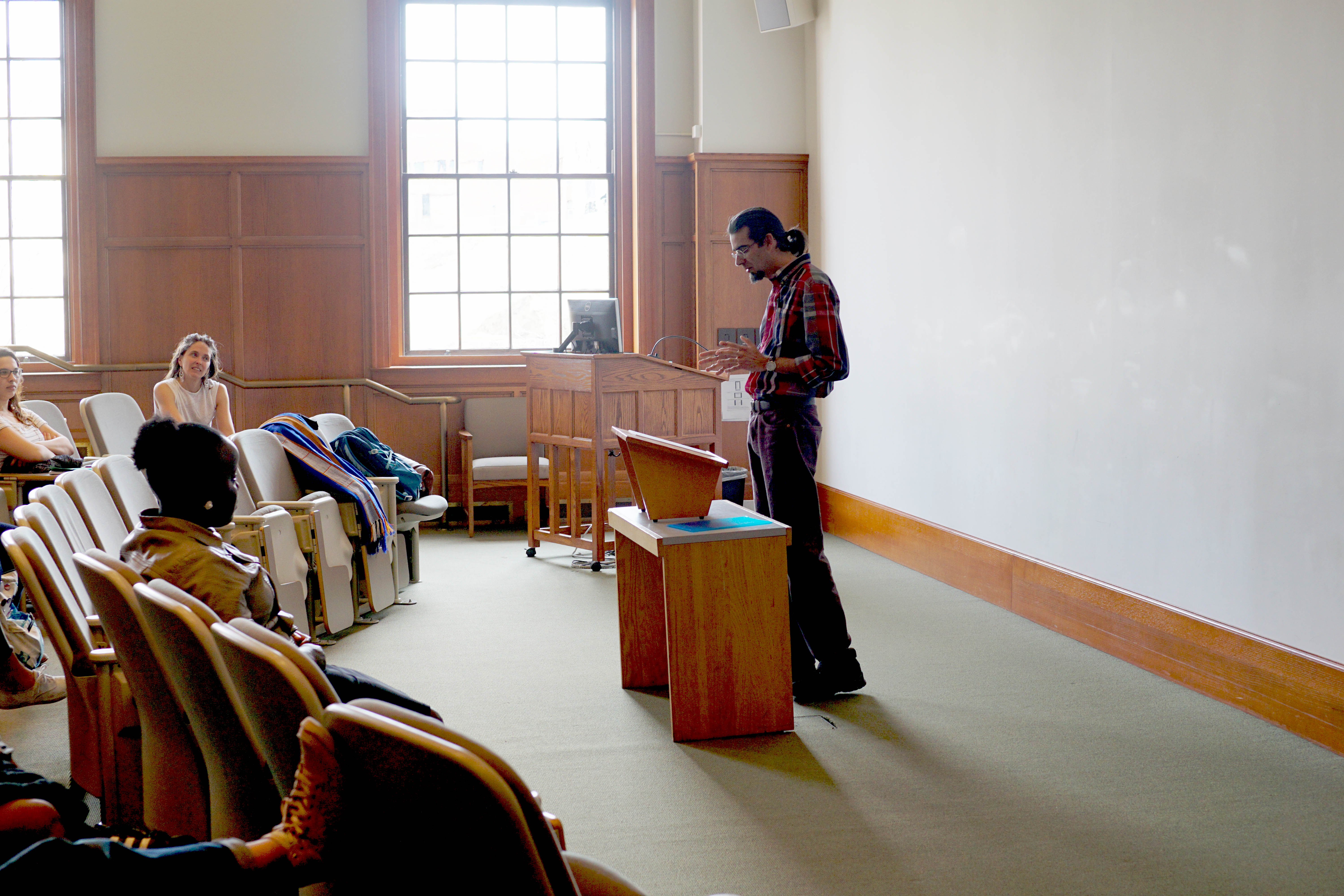

Atlantic and Slavery Studies Professor Manuel Barcia gave a talk at the college titled “White Cannibalism in the Slave Trade” on Monday, April 17 in Pruyne Lecture Hall.
Barcia is a Latin American history professor at the University of Leeds in England and current visiting fellow at Yale University’s Gilder Lehrman Center for the Study of Slavery, Resistance and Abolition. Barcia has also written for publications such as Al Jazeera English, The Independent and The Huffington Post. His academic focus is on slave resistance and rebellion in Brazil and Cuba.
In his talk, Barcia examined the story of the Portuguese slave-trading ship “Arrogante,” which was captured by British forces off the coast of Cuba with more than 330 African slaves aboard in 1837 after the slave trade and slavery had been abolished by Portugal. After being freed, many former slaves reported that while at sea, the Portuguese sailors had killed an enslaved man, cooked him and served the meat to them. They also accused the sailors of eating the man’s heart and liver. Local British authorities investigated, but the sailors were never found guilty.
“[Cannibalism] has consistently been considered as a marker for so-called ‘uncivilized people,’” Barcia said. “By focusing on the events of a slave ship, it is possible to offer ... a reversal of roles, one in which the Europeans appear as flesh-eating savages and the Africans as the civilized party.”
After discussing accounts of violent and inhumane treatments by the Portuguese sailors from Africans on the ship, Barcia talked about the failure of the British judicial system in Jamaica to recognize the violence inflicted by the sailors and hold them accountable under the law.
“Did the authorities really fail to believe the Africans?” Barcia asked. “Or did they instead choose not to believe them in hopes of avoiding a long, potentially embarrassing judicial process in which the superiority of their own culture and civilization could be brought into question?”
The case of the Arrogante is the only officially documented case of “white cannibalism,” where white Europeans killed and consumed other people, Barcia said. But, while European judicial systems during the time period would use the term “cannibal” when these acts were committed by African and other non-Western people, they did not use it when describing the acts committed by the Portuguese sailors, instead using euphemisms and innuendos.
This suggests that there may have been other cases of white cannibalism on slave ships between the 16th and 19th centuries that have gone unrecorded in history, Barcia said.
“The slave ship in the Middle Passage may then have become the perfect stage for the perfect crime, one that could not be proven and from which its perpetrators were likely to suffer no persecutions of any kind,” Barcia said.
Ultimately, however, Barcia said that this was a significant historical event, even if it was a singular one.
The implications of white cannibalism aboard the Arrogante, he said, “represented nothing short of an alarming turnaround of the traditional roles ascribed to Europeans and Africans … This was a case that straightforwardly defied the superiority of the white man, the western civilization and the Christian values and beliefs.”
SabriAnan Micha ’19, who attended the talk for a class, said she enjoyed how Barcia’s analysis of the judicial system related to contemporary issues of race and law enforcement, especially how different language is used to describe crimes committed by white people and black people.
“I think it was alarming how much he said that I could see today,” she said. “When we talk about police brutality, for example, it’s not called ‘police brutality.’ It’s called ‘disciplining’ or whatever — it’s not called straight-up murder. But then when you talk about black-on-black crime, they’re like, ‘Oh, everyone’s getting murdered!’”
Barcia’s talk was followed by a Q&A session, in which he answered questions on the role of the Arrogante in the British abolitionist movement and connections between this case and contemporary issues.